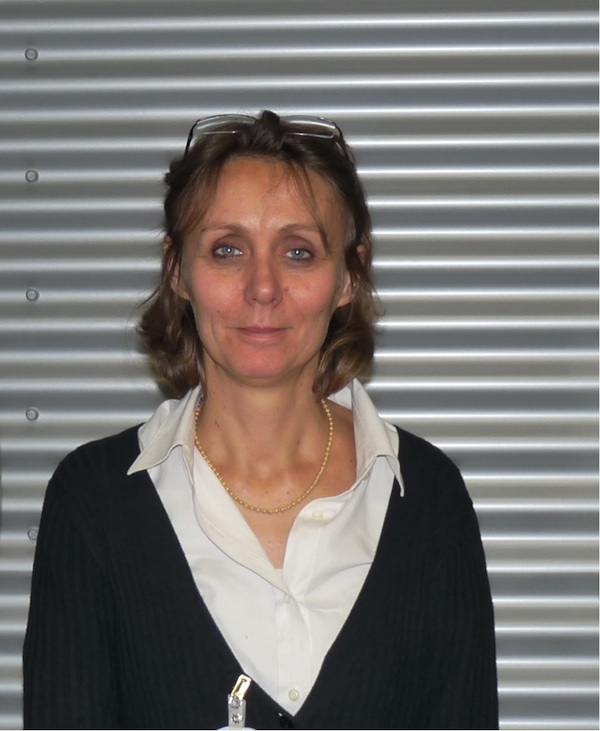 Roberta Sessoli received her PhD in Chemistry from the University of Florence working on low dimensional molecular magnetic materials under the supervision of Dante Gatteschi. Since 2000 she is associate professor of chemistry at that University. Her research interests have focused on the magnetic properties of molecular clusters and chains. She has been a pioneer in the field of magnetic bistability at the molecular level and quantum effects in these mesoscopic materials. She has also been one of our ICIQ Seminar speakers and we spent some time talking to her in our Face to Face.
Roberta Sessoli received her PhD in Chemistry from the University of Florence working on low dimensional molecular magnetic materials under the supervision of Dante Gatteschi. Since 2000 she is associate professor of chemistry at that University. Her research interests have focused on the magnetic properties of molecular clusters and chains. She has been a pioneer in the field of magnetic bistability at the molecular level and quantum effects in these mesoscopic materials. She has also been one of our ICIQ Seminar speakers and we spent some time talking to her in our Face to Face.
When did you decide to become a scientist and why?
I didn´t have a clear idea on what to do after high school. I was actually interested in studying oriental languages and I even went to Venice to visit the University! However, I realised that the professor I talked to was a bit depressed so I decided to visit the faculty of chemistry instead. The professor there was very inspiring.
What do you like and enjoy the most in your job?
I really like interacting with my students and sharing my knowledge with them. It is like a relay race (in Italian we call it staffetta). My research group is like a big family to me. It is very rewarding to see that your PhD and PostDocs are doing well and to feel that you have contributed somehow to their success.
What do you see as the greatest achievements in your career to date?
I have succeeded in making two different communities talk to each other. I found a new research area to work on, which sits at the interface of nanoscale magnetism and magnetism at the molecular level.
I studied part of my PhD at the Institut d’Electronique Fondamentale of the Paris-Sud University. This introduced me to magnestism and physics, which together with my chemistry background helped me develop a new area at the interface of the two fields.
From your point of view, what are the most important areas in which funding should be spent on?
If you think of the relevance to society, you would think of fossil fuels issues, CO2 generation, solar energy harvesting… However, I think we should be very careful and not forget about the funding of other aspects of science that may not be as fashionable at the moment.
We see many women studying chemistry at University including at PhD level; however, we do not see that many women working as researchers or academics. Why do you think that happens and what can we do to minimise that?
In this regard, Italy is a slightly different case. We have some ‘advantages’ due to one of our major society’s flaws: we don´t like mobility. Investment at University is done to favour your personal development and advancement where you are. This is actually very helpful if you want to raise a family. It allows you to being strongly committed to both your research and your family.
Overall, I would say it’s mainly a problem of self-confidence. I have never found any positive or negaitve influence by being a woman in my career. I am very lucky because my family has always been very supportive. As I said once, the saying ‘behind every great man there is always a great woman’ works also the other way around. Fortunately, it has been my case.
What do you do in your spare time?
I have recently started to take piano lessons. I also like hiking and running and I try to spend as much time as I can with my family. I also enjoy being on my own, doing my own things and taking care of myself.
PROUST/ICIQ QUESTIONNAIRE
A chemical element: Manganese
Favourite Scientist: Richard Feynman. I read his biography and I really enjoyed the bit when he was asked whether he wanted his tea with lemon or milk and, not having done tea before, he answered both!
Your favourite invention: Scanning Tunnelling Microscopy. I was convinced it couldn´t work!
If you had not been a biochemist… I would have been an engineer.
Favourite destination: From the Alps to the sea. I would like to have time to go everywhere! I love travelling.
A book: ‘Confessioni di un Italiano’ – Ippolito Nievo
A film: ‘Cento Passi’ Watch it if you want to know more about the South of Italy.
A dream: To be able to play piano!
Science is… freedom